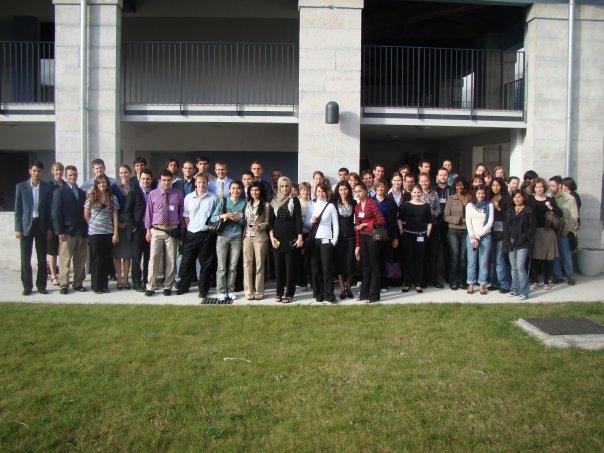Third NATO Afghan Student Forum

From 13 to 17 October 2008 the city of Bayonne was host of the third NATO Afghan Students Forum, organized by the Law Faculty of Bayonne and the Public Diplomacy Division of NATO.

From 13 to 17 October 2008 the city of Bayonne was host of the third NATO Afghan Students Forum, organized by the Law Faculty of Bayonne and the Public Diplomacy Division of NATO.
Almost forty students from all over the world – ranging from NATO member states like the United States to Central Asian countries like Tajikistan – gathered to discuss the current situation in Afghanistan. Moreover, academics and experts from international organizations like NATO, the United Nations and the European Union held briefings about varied topics such as the Comprehensive Approach, the regional context of the Afghan war, and public opinion. Finally, four workshops organized by Afghan students provided the other participants first-hand information about everyday life in Afghanistan and a glance of the view of the local people with regard to the conflict.
As several experts noted during the conference, Afghanistan finds itself currently at a turning-point. Since the fall of the Taliban in 2001 many positive developments took place, like the advent of democratic elections, the growth of a basic health care system, more literacy, an efficient army and a stable currency. However, many unfortunate events take place at the same time. The security situation has deteriorated sharply, the Afghan police forces are very weak, drug trafficking mounts, as do corruption and criminality.
The Comprehensive Approach – agreed on by NATO member states during the summit in Bucharest last April – was a key concept in the forum. The international community acknowledges the absolute necessity to coordinate its efforts in order to provide security and stabilization for the Afghan people. NATO should work together with other international organizations, NGOs and local actors. Moreover, military and civilian efforts go hand-in-hand. In other words, stabilization cannot be reached without a proper level of security. Another important aspect of the Afghan war is that it should not be regarded in isolation. The Afghan conflict should be seen against the background of challenges of the region as a whole. For instance, many insurgents against the international involvement in Afghanistan come from the Pakistani border region. Another topic that was frequently discussed is the importance of public opinion. Not only does the international community need to convince the Afghan population that they make the right choice when they support international forces within their country, it also should persuade people at home that this international commitment is a good thing. For example, a large part of the Dutch population criticizes its country’s troop deliverance as the return of body bags of deceased soldiers increase with time.
One of the most impressive parts of the conference were the workshops organized by the Afghan students. The personal stories of the Afghans were quite impressive as they were able to give first-hand information about the (current) situation on the ground in their country. Their views can open our western eyes a bit to the particular Afghan culture and make us more aware of the sensitivity with which we should operate in Afghanistan. It is clear that the international community cannot aim to impose its own western style of democracy and modernity on a foreign country without acknowledging the particularities of the country. If it does not hold this important lesson in mind, it could never succeed in winning the hearts and minds of the Afghan people.
Quirine Verhoek from the Netherlands
Disclaimer: the views and opinions expressed are those of the authors, and do not necessarily reflect NATO’s views.